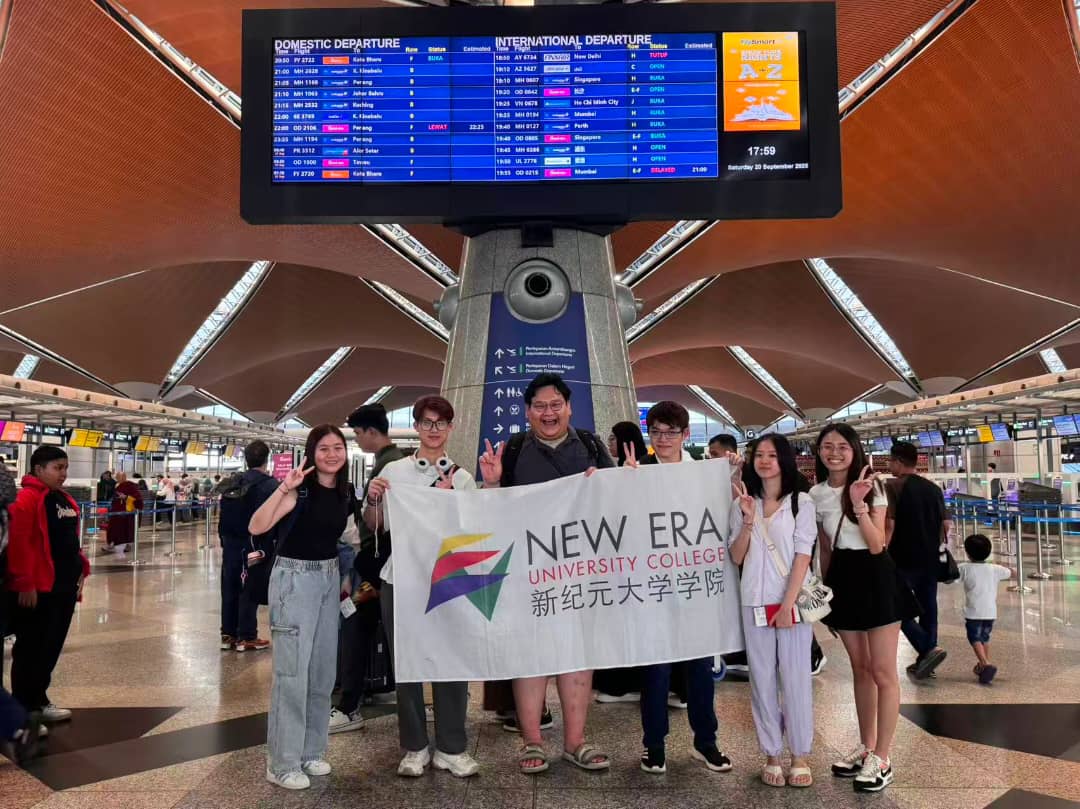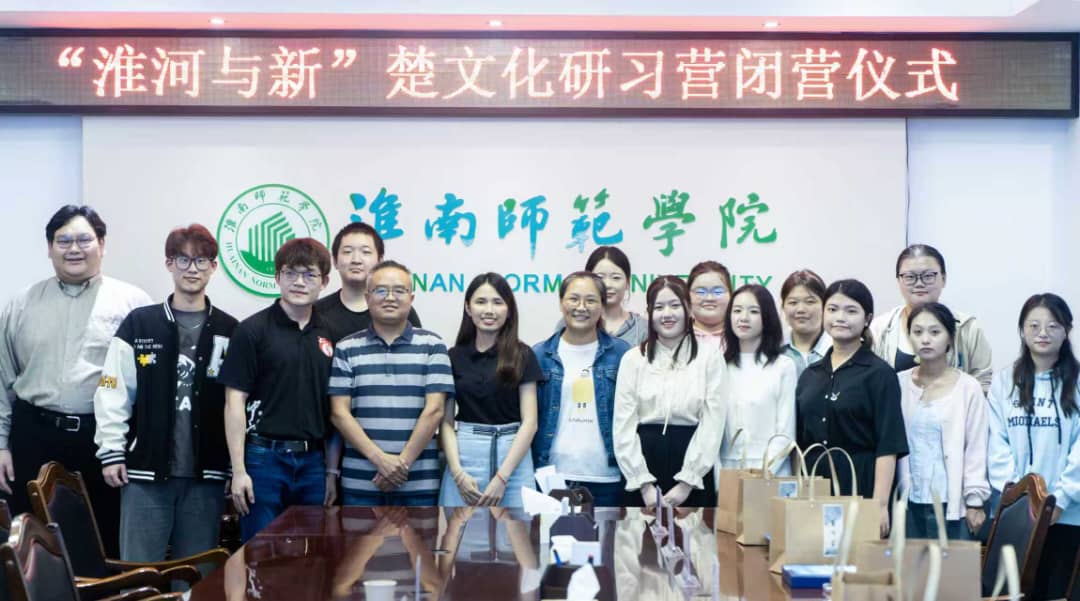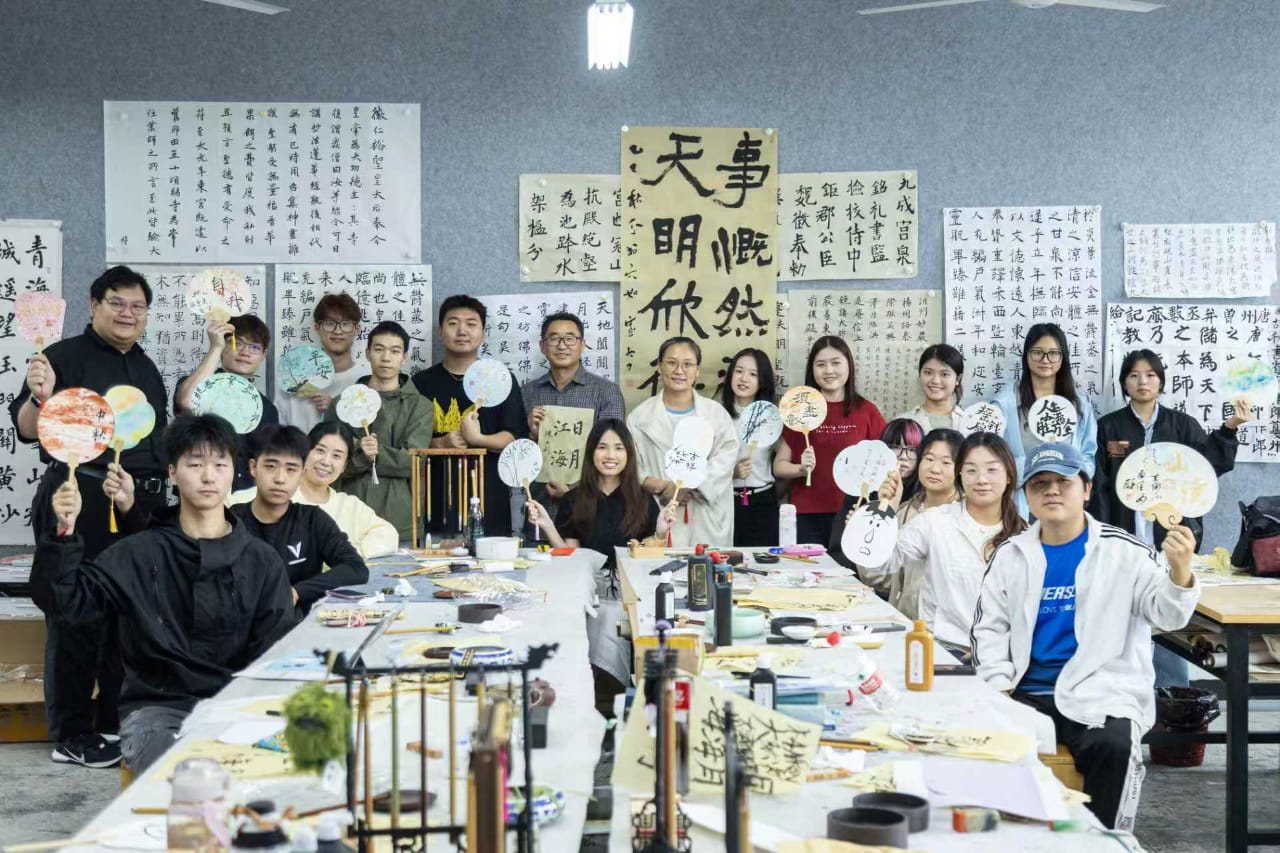New Era University College students explored Chu culture in a successfully concluded study camp
New Era University College (NEUC) successfully held the ‘HuaiHe and New’ Chu Culture Study Camp from 21 to 26 September 2025. A total of six students and one accompanying teacher from NEUC traveled to Huainan Normal University in China for a six-days cultural learning and exchange journey, immersing themselves in the unique charm of the local Chu culture.
This study camp marked the first time that teachers and students from NEUC visited Huainan Normal University for on-site research and exchange. Since 2020, both parties have established a friendly cooperative relationship and have jointly organized multiple idiom competitions, laying a solid foundation for interaction. The successful holding of this in-person study camp signifies a new stage in their collaboration.
The ‘HuaiHe and New’ Chu Culture Study Camp is one of NEUC’s key programs to encourage students to "go global." It aims to enhance students' international perspectives and cultural understanding through cross-border cultural exploration and field study, cultivating a new generation of talents with cultural literacy and global competitiveness.
During the six-days exchange, students not only deeply experienced the charm of Chu culture but also engaged in meaningful interactions with teachers and students from Huainan Normal University, promoting cross-cultural dialogue and friendship between Chinese and Malaysian youth. Many students said it was their first time visiting mainland China and that they gained a lot from the field study.
A student from the Department of Teaching Chinese as Second Language, shared: “Last semester, I took a classical Chinese course and encountered the ‘Peng’ described by Zhuangzi. At that time, I only understood its relation to ‘Peng’ (friend) and ‘Feng’ (phoenix). Through Teacher Xi’s explanation, especially the example of the ‘Tiger Seat Phoenix,’ I truly appreciated the noble status the ‘Feng’ holds within Chu culture.”
He also mentioned that Dr. Fang’s lecture on the 24 solar terms was impressive. It not only detailed the unique features of the Huainan region but also expanded his understanding of the solar terms. “In the past, I only associated the 24 solar terms with farming, but now I realize they contain rich cultural meanings. The lecture was very informative and clear, opening up a new perspective for me. It was so dense that I needed time to fully digest it and couldn’t immediately come up with follow-up questions.”
He sincerely thanked for both universities for their thoughtful arrangements and said that the day’s lectures were very rewarding for everyone.
Stepping into historical sites, deepening cultural understanding
During the visit to the "China Tofu Village," students closely observed the traditional tofu-making process and realized the close connection between local food culture and regional history.
During the field study in the ancient city of Shou County, students visited the old city walls, ancient streets, the Confucius Temple, and Bao’en Temple. They learned that Shou County was an important capital of the Chu State during the Spring and Autumn and Warring States periods, with significant geographical and cultural importance in Chinese history.
Additionally, during the visit to the Anhui Chu Culture Museum, students had the opportunity to see authentic ancient artifacts firsthand and gained a more direct understanding of the local history and culture through the guide’s explanations.
At the closing ceremony of the study camp, students from NEUC sang "Chinese People, Chinese Dream," expressing their love for Chinese culture and their desire to carry on its heritage. This deeply moved the teachers and students of Huainan Normal University and further strengthened the bond between them.
Although the ‘HuaiHe and New’ Chu Culture Study Camp has concluded, the cultural identity and human connection built between Chinese and Malaysian youth during this journey will continue to grow. In the future, NEUC will deepen its cooperation with Chinese institutions, promoting more diverse cultural exchange programs to open doors to the world for students and to continuously inject new energy into the spread of Chinese culture.




